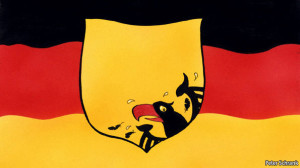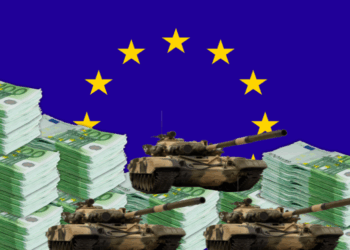 When discussing foreign policy, few consider political and ideological positions, as if choices about international politics were determined by national interests, traditions, history rather than by the alternation of government. Of course, in many cases national foreign policies are carried out in continuity regardless of the colour of government. And sometimes unexpected friendships or alliances arise which cross the right-left divide, such as the years of the Bush-Blair entente.
When discussing foreign policy, few consider political and ideological positions, as if choices about international politics were determined by national interests, traditions, history rather than by the alternation of government. Of course, in many cases national foreign policies are carried out in continuity regardless of the colour of government. And sometimes unexpected friendships or alliances arise which cross the right-left divide, such as the years of the Bush-Blair entente.
But sometimes the political orientations of government are an unadressed question of foreign policy observers. This element has not really been looked at in this fascinating debate on Germany’s role in Europe, which has caught the attention of foreign policy analysts for the past couple of years. The generally agreed terms of this debate lament Germany’s inability to think ‘strategically’ about its international role and the absence of leadership and vision in Europe.
The reasons behind this make the debate fascinating: the legacy of history, a tradition of thinking about business interests only, without the connections with the rest of politics, hard to change mindsets, the moral dilemmas that Germans appear to want to address ex ante, the need for some kind of Hegelian vision of everything before taking any decision.
I agree with Jan Techau’s complaint that there is a strategic vacuum in the middle of Europe. Germany is the largest and most powerful country: if it wants leadership on economic issues, it needs to live up to its consequent political and international responsibilities. But at the same time I would not want the current Germany to take the strategic lead. Looking at the actual choices the government has made on a variety of international positions, I see the party’s positions, not just the country’s positions.
As thing stand today, if the EU were to have German foreign policy leadership (which, by the way, on some issues it does), we would have: a failed relationship with Turkey, probably an antagonistic one; enlargement to the Balkans would have probably been blocked due to rooted anti-Serb sentiment; hob-knobbing with China and, most of the time, with Russia, in the interest of business; no policy whatsoever towards North Africa and the Middle East beyond selling washing machines, cars, arms and whatever else Germany sells to the Arab wealthy; unconditional support for political leaders with the same ideological affiliation of the main party in government in Berlin, regardless of whether it is smart to support them (and, by the way, the moral grounds for being nice to Putin and not to Yanukovich are not very evident); even less intention to make progress on European defence cooperation (remember the failed EADS-BAE merger).

Many would argue that these examples are a reflection of Germany’s inability to take up the role of a strategic leader within the EU framework. Perhaps, probably. But what if these were the result of conscious political decisions? It seems that on all these issues the Christian Democratic Union has rather clear views. Finally, if German leadership in international politics were to result in the divisiveness derived from its leadership of the economic crisis, the already divided EU can do without it. So, the quest for leadership should stay open.
Rosa Balfour





![I voli Air Canada risultano cancellati all'aeroporto internazionale Pearson mentre gli assistenti di volo sono in sciopero a Toronto sabato 16 agosto 2025. [Photo by Sammy Kogan/CP/ABACAPRESS.COM]](https://www.eunews.it/wp-content/uploads/2026/01/IPA_Agency_IPA62518900-350x250.jpg)





